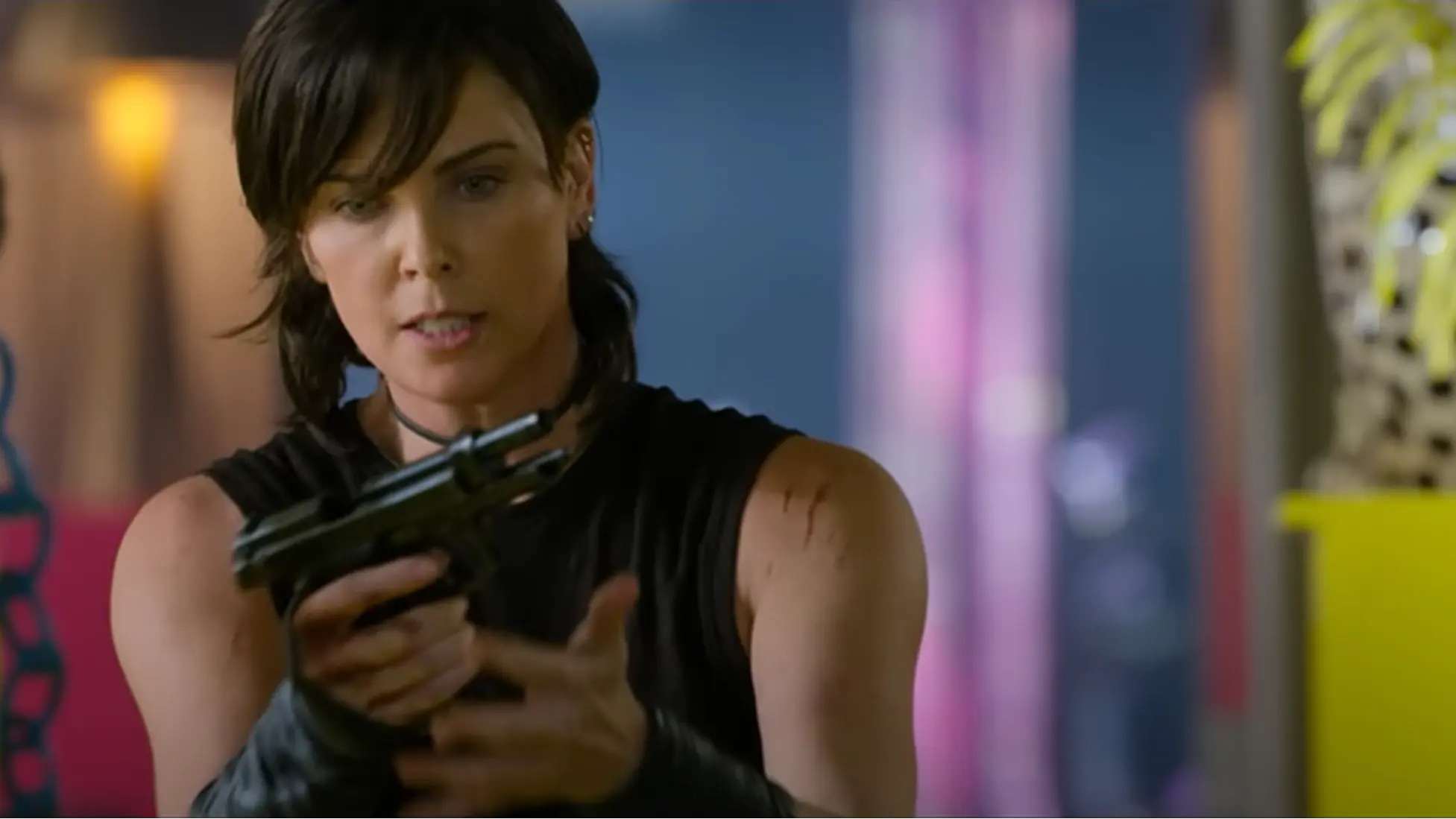“I didn’t tell anybody” - When Charlize Theron opened up about her childhood tragedy
-
 THE OLD GUARD 2 (2025). Photo: ©Netflix / Courtesy Netflix
THE OLD GUARD 2 (2025). Photo: ©Netflix / Courtesy NetflixCharlize Theron is celebrated for transformative performances in films like Monster, Mad Max: Fury Road, and 2025’s The Old Guard 2. Yet behind the Oscar winner’s fearless screen presence lies a formative trauma she once buried in silence.
In a July 21, 2017, radio appearance recapped by People, Theron revisited the night in 1991 when her mother, Gerda, shot and killed her alcoholic father in self-defense.
She recalled spending years pretending the event had never happened, telling classmates her dad died in a car crash. She admitted,
“I just pretended like it didn’t happen. I didn’t tell anybody — I didn’t want to tell anybody.”
The instinct to shield herself from pity or voyeuristic curiosity shaped her teenage years. Theron said she feared people’s reactions and rejected the idea of being cast as a victim. Only therapy in her late twenties finally helped unpack the accumulated stress of living with an unpredictable parent.
“I have an incredible mother… She’s a huge inspiration in my life” - Charlize Theron on her mother
Charlize Theron emphasized that survival was a joint effort with Gerda. As per the same People report dated July 21, 2017, she praised her mother’s pragmatic mantra: acknowledge the horror, then choose whether it will define you. That clear-eyed resolve helped Theron navigate grief and a volatile childhood. She stated:
"I have an incredible mother… She’s a huge inspiration in my life. She’s never really had therapy. So a mother who never really had therapy dealing with something like that — trying to get your child out of that."
In the interview, she credited Gerda for refusing to let the tragedy stall their lives:
“Her philosophy was ‘This is horrible. Acknowledge that this is horrible. Now make a choice. Will this define you? Are you going to sink or are you going to swim?’ That was it.”
The guidance hardened Theron’s resilience and set a template for the independent career choices she would later make.
Key moments and lessons from the 2017 Howard Stern conversation
1) Silence as a coping mechanism
Theron’s first reaction was concealment. She lied about the cause of her father’s death to avoid awkward sympathy. Capturing how trauma can isolate survivors, she said,
"Whenever anybody asked me, I said my dad died in a car accident. Who wants to tell that story? Nobody wants to tell that story."
2) The real damage was daily, not singular
She stressed that the nightly fear of an alcoholic household left deeper scars than the shooting itself. The constant unpredictability etched anxiety into her adult life.
3) Late-onset therapy
Therapy only began once she sensed anger surfacing in her thirties. By then, success had not erased the underlying tension. Her admission underscores that professional help is not a sign of weakness but a pathway to perspective.
4) Refusal to feel like a victim
Theron told Stern she resisted narratives that framed her solely through tragedy. That refusal later informed her choice of complex, empowered characters on screen.
Collectively, the quotes chart a journey from suppression to articulation. By publicly naming her fears, Theron reframes the incident as a catalyst for growth rather than a lifelong shadow.
Where Charlize Theron is now (2025 update)
At 49, Charlize Theron balances blockbuster franchise work with activism and motherhood. She reprises immortal warrior Andy in The Old Guard 2 on Netflix and voices Imperator Furiosa in a narrative podcast tied to Mad Max. Off-screen, the Charlize Theron Africa Outreach Project funds youth HIV-prevention programs across southern Africa.
Charlize Theron’s openness about family violence now informs that outreach. She regularly partners with domestic-abuse NGOs, arguing that early intervention can break cycles like the one that engulfed her household. Looking back, the confession “I didn’t tell anybody” illustrates how silence once served as armor.
By retelling the story on her terms, Charlize Theron replaces secrecy with agency. The actress who embodied Furiosa’s battle cry now channels that same defiance into real-world efforts, proving that confronting the past can fuel a purposeful present.
Stay tuned for more updates.
TOPICS: Netflix, Charlize Theron
- Stranger Things season 5 episode guide and complete release schedule: What days do the new episodes drop?
- Here’s the Latest on the Physical: Asia Cast’s Relationship Statuses
- Physical Asia: Key women participants featured this season
- Black Friday savings offer: Top deals from major streaming platforms Peacock, Disney+, Hulu, Netflix, Apple TV+, and more